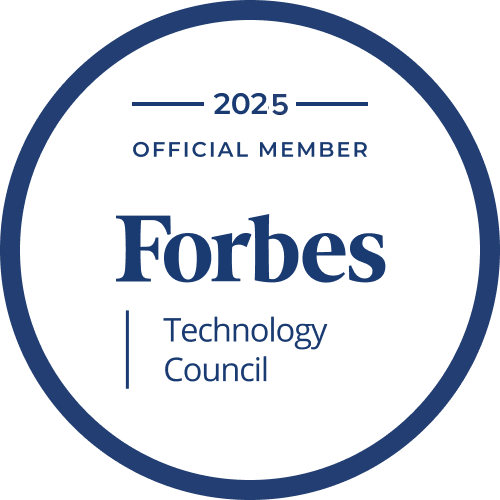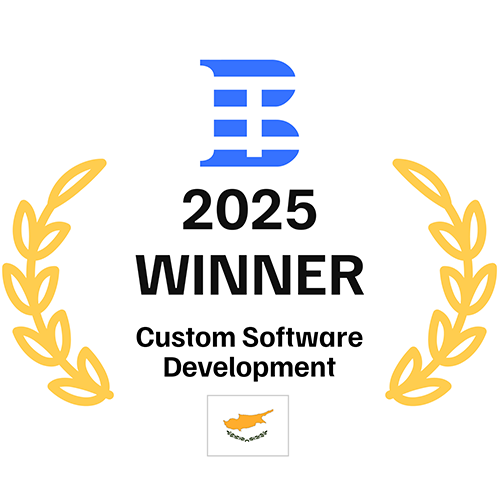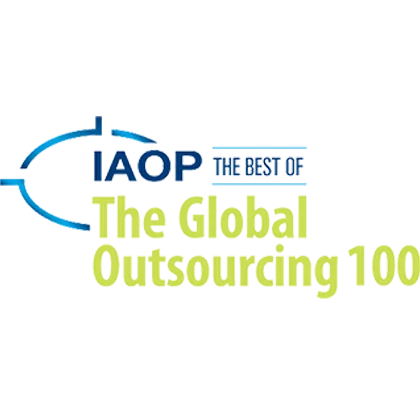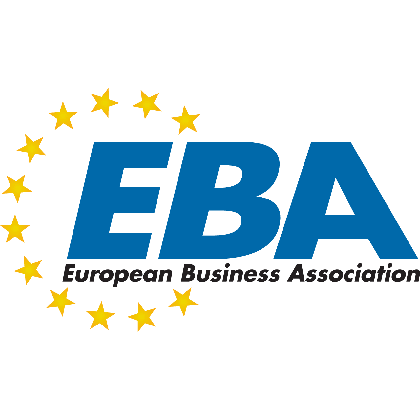Considering the intense economic landscape, businesses constantly seek ways to optimize operations, reduce costs, and maintain a competitive edge. One such avenue that has gained significant traction is tech outsourcing. Tech is increasingly important for businesses in any industry, but maintaining an in-house and efficient tech team might be too cost-demanding for many companies. Here is where outsourcing comes in handy.
For companies requiring Unity development, outsourcing is one of the most affordable ways to reach their goals. As the demand for Unity-based applications rises, so does the need for skilled developers. However, building an in-house Unity development team can be costly and time-consuming. This has led many businesses to consider the cost-effective alternative of outsourcing.
Businesses can leverage expert knowledge, reduce overheads, and accelerate time-to-market by partnering with a specialized Unity development company like Program-Ace. This article delves into the cost-effectiveness of Unity outsourcing, exploring the advantages, challenges, and best practices to ensure optimal ROI.
The Growing Importance of Unity in the App Development Industry
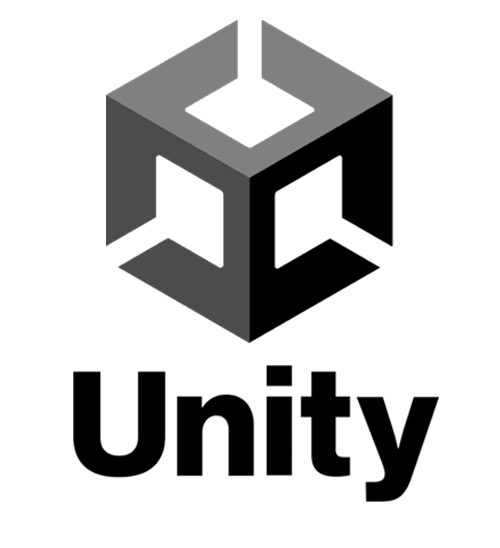
Unity's ascent in the app development world is nothing short of meteoric. Initially recognized as a game engine, its capabilities have expanded beyond gaming, making it a preferred choice for many industries. The engine's cross-platform development feature is a game-changer, allowing developers to create applications for over 25 platforms, from mobile devices to gaming consoles. This vast reach ensures businesses can cater to a diverse and expansive audience.
Furthermore, Unity's support for C# libraries simplifies the development process, making it accessible to many developers. Its advanced animation system, Mecanim, and native UI editor further enhance its appeal, enabling the creation of visually stunning and user-friendly applications. As industries continue to recognize the potential of augmented and virtual reality, Unity's prowess in these domains solidifies its indispensable role in modern app development.
The Role of Outsourcing in Unity Development
Outsourcing has emerged as a strategic approach for businesses aiming to harness the capabilities of Unity without the overheads of an in-house team. Given Unity's multifaceted nature, mastering its full spectrum requires a diverse skill set, often making it challenging for companies to recruit and retain the necessary talent. In many cases, companies choose to hire Unity developers via outsourcing rather than build an in-house team, which helps them scale more flexibly and avoid long-term staffing burdens.
Outsourcing bridges this gap by providing access to a pool of seasoned Unity developers with specialized expertise. It's not just about cost savings but agility and scalability. Companies can swiftly scale their development efforts up or down based on project requirements without the long-term commitment of hiring full-time staff.
Additionally, outsourcing to regions with favorable economic conditions can further optimize costs. Businesses can focus on core competencies by delegating Unity development tasks to external partners, ensuring that the final product benefits from domain expertise and top-tier Unity development skills.
The Advantages of Outsourcing to a Unity Development Company
Outsourcing Unity development has become a strategic move for businesses worldwide, considering the dozens of benefits clients can access. Let’s delve deeper into the advantages to reveal the comprehensive value that such partnerships bring:
Expertise and specialization. Unity development companies are often at the forefront of technological advancements. Their teams comprise specialists who have honed their skills across many projects. This depth of expertise ensures that your project is up-to-date with the latest industry standards and benefits from innovative solutions that can set it apart.
Risk mitigation. Partnering with seasoned Unity development companies means leveraging their experience. These companies have navigated various project challenges, developed risk management strategies, and established robust workflows. This expertise minimizes potential project pitfalls and ensures smoother development trajectories.
Reduced overheads. The costs associated with hiring, training, and retaining an in-house Unity development team can be substantial. Outsourcing sidesteps these expenses, allowing businesses to strategically allocate funds in marketing, research, or other vital areas.
Access to global talent. The world is a vast reservoir of talent. Outsourcing breaks geographical barriers, enabling businesses to tap into global expertise. This diversity can introduce fresh perspectives, innovative solutions, and a broader understanding of global user preferences.
Faster time-to-market. A dedicated external team, free from the typical organizational distractions, can accelerate the development process. This efficiency translates to quicker product launches, allowing businesses to seize market opportunities faster than competitors.
Flexibility and scalability. The ebb and flow of project requirements can be challenging to manage with a fixed in-house team. Outsourcing partners offer the agility to scale resources up or down based on the project's evolving needs, ensuring efficiency without compromising quality.
Continuous learning and upgrade. Unity development companies are invested in continuous learning to stay competitive. This commitment to growth means they are often abreast of the latest tools, technologies, and industry trends, ensuring that your project continuously leverages cutting-edge solutions.
Focus on core competencies. Outsourcing Unity development allows businesses to redirect their internal resources to areas of core competency. Whether it's strategy, marketing, or customer engagement, companies can focus on what they do best while the outsourced team handles the technical intricacies.
The advantages of outsourcing to a Unity development company extend beyond cost and time savings. It's about harnessing global expertise, ensuring product excellence, and positioning the business for sustained success, which subsequently helps to withstand the intense competition we see now in the market.
Risks and Challenges of Unity Development Outsourcing
Outsourcing Unity development, while advantageous, is not without its challenges. Recognizing and proactively addressing these potential pitfalls is crucial for a successful partnership. Below is a table that outlines some of the common challenges faced during Unity development outsourcing and their corresponding solutions:
| Challenges | Solutions |
| Communication Barriers | Adopt tools and platforms that facilitate seamless communication. Schedule regular check-ins and updates. |
| Cultural Differences | Conduct cultural training sessions for both teams. Foster an environment of mutual respect and understanding. |
| Quality Assurance Concerns | Ensure the outsourcing partner has a robust QA process. Request regular demos and testing reports. |
| Data Security and Intellectual Property Risks | Draft clear contracts outlining IP rights. Use secure platforms and VPNs for data transfer. |
| Unclear Project Scope and Requirements | Begin with a detailed project blueprint. Ensure both parties have a clear understanding of deliverables. |
| Time Zone Differences | Schedule overlapping working hours. Use asynchronous communication tools for non-urgent discussions. |
| Potential Hidden Costs | Request a transparent cost breakdown. Ensure all potential expenses are discussed upfront. |
| Lack of Control Over the Development Process | Use project management tools to track progress. Establish clear milestones and deliverable dates. |
While these challenges might seem daunting, they can be effectively managed with the right partner by your side. A reliable outsourcing partner brings expertise and experience and understands the intricacies of these potential pitfalls. With its rich history in Unity development and a commitment to excellence, Program-Ace stands out as a partner that can help businesses overcome these challenges. By choosing Program-Ace, you're not just outsourcing a project but gaining a dedicated ally in your journey to success.
The Main Factors That Influence Cost-Effectiveness of Outsourcing to Unity Development Company

Outsourcing Unity development can be a strategic move offering financial and operational advantages. However, the overall cost-effectiveness of such a decision is shaped by multiple factors. Delving deeper into these can help businesses optimize their outsourcing strategy and derive maximum value.
Choosing the Right Outsourcing Partner
The foundation of a successful outsourcing venture lies in partnering with the right company.
- Experience and expertise. A seasoned partner brings a wealth of knowledge from past projects. Their expertise can prevent common pitfalls, ensuring a smoother development process and cost savings.
- Reputation. A company's standing in the industry can indicate its commitment to quality and efficiency. Partners with a solid reputation often have streamlined processes, reducing unnecessary overheads and ensuring timely delivery.
- Communication. The importance of clear communication cannot be overstated. Misunderstandings or lack of clarity can lead to revisions, increasing costs. A partner who values and practices transparent communication can significantly enhance project efficiency.
- Cultural compatibility. Understanding and aligning with the business culture can prevent conflicts and misalignments. A partner that resonates with your company's values and work ethics can ensure a harmonious working relationship.
Project Complexity and Scope
The intricacies of the project play a pivotal role in determining its cost dynamics.
- Features and functionality. While a feature-rich application can offer more value, it also comes with increased development costs. Balancing features with budget constraints requires careful planning.
- Customization. Tailored solutions, designed to align perfectly with business needs, can offer better ROI in the long run, even if they demand a higher initial investment.
- Integration with existing systems. Seamless integration can be complex, especially with legacy systems. However, ensuring smooth integration is crucial for the application's optimal performance and user experience.
- Platform diversity. Developing for multiple platforms increases reach but can also add to the complexity and cost of the project.
Project Management and Oversight
Effective management is the linchpin that holds the project together.
- Clear milestones and deliverables. A well-defined roadmap with specific milestones ensures that the project remains on track regarding timeline and budget.
- Feedback loops. Regular reviews and feedback sessions enable course corrections, preventing costly overhauls at later stages.
- Resource allocation. Ensuring that human and technological resources are utilized optimally can prevent bottlenecks and delays, leading to cost savings.
- Risk management. Proactively identifying potential risks and implementing mitigation strategies can prevent unexpected expenses and project derailments.
The cost-effectiveness of outsourcing Unity development is a nuanced equation influenced by many factors. By meticulously addressing each aspect, businesses can ensure that their outsourcing venture is cost-effective and value-driven.
Case Studies: Cost-Effectiveness in Unity Development Outsourcing
Unity development is vast, encompassing many applications that can revolutionize industries. Program-Ace developed one such transformative application, showcasing the power of immersive training through Unity. Let's delve into this case study to understand the cost-effectiveness and value delivered through Unity development outsourcing.
Program-Ace was tasked with creating an immersive training solution for navy vessels' engine control units. The objective was clear: develop comprehensive training software accessible across VR, MR, and web platforms. The software would provide a 3D visualization of an engine control unit, complete with interactive features, aiming to enhance the technical skills of servicemen and specialists.
The challenges were multifaceted. From understanding the intricate workings of the engine unit to ensuring consistent quality across VR and MR versions, the team had their work cut out for them. Creating a web platform for result monitoring added another layer of complexity.
However, with a dedicated approach, Program-Ace developed a trainee interface featuring a lifelike 3D model of the engine unit. Trainees could seamlessly switch between reading and hands-on modes, enhancing their learning experience. The meticulous efforts of the 3D artists and developers ensured that the virtual engine unit mirrored its real-life counterpart in every detail.
The technology stack was robust, combining C#, Visual Studio, Adobe Photoshop, 3DS Max, DoTween, and Unity. The application was tailored for Hololens (MR), Oculus (VR), and mainstream web devices, ensuring accessibility and consistency.
The value delivered was immense. Navy engineers and specialists now had an accessible and straightforward training process, enhancing their understanding without compromising safety. The immersive experience and the high-detail model ensured a hands-on education feel. Moreover, trainers and supervisors were equipped with advanced tools for monitoring the training process, streamlining their tasks, and enhancing the overall training efficacy.
The Program-Ace team used its usual project management, resource allocation, and development environment management practices during the development process. They allowed for building an efficient plan and avoiding unexpected expenses, keeping the budget efficient.
Best Practices to Keep Cost Optimized When Outsourcing to a Unity Development Company
Outsourcing Unity development can be a strategic move that offers significant financial advantages. However, to truly harness the potential of these benefits and ensure that costs remain optimized throughout the project lifecycle, businesses must be proactive and adhere to certain best practices. These practices ensure cost efficiency and pave the way for a smoother, more productive collaboration.
Clear Objectives and Expectations
A well-defined roadmap is the cornerstone of a successful outsourcing venture.
- Detailed brief. Begin with an exhaustive project brief that encapsulates every project facet. This clarity minimizes the chances of unexpected changes, which can inflate costs.
- Set boundaries. Demarcate the scope of work explicitly. Ambiguities can lead to discrepancies, resulting in additional tasks and increased expenses.
- Outcome-oriented approach. Prioritize the end goals. This ensures that the development trajectory aligns seamlessly with business objectives, guaranteeing that resources are utilized effectively.
- Stakeholder alignment. Ensure that all stakeholders, from both sides, understand and agree upon the project's objectives and expectations. This alignment prevents potential conflicts and misalignments down the line.
Effective Project Management
Streamlined management is crucial for keeping the project on track and within budget.
- Use of project management tools. Employ tools that facilitate real-time tracking, resource allocation, and task management. This transparency ensures that any bottlenecks or delays are promptly addressed.
- Milestone-based development. Segmenting the project into manageable milestones allows for more granular monitoring and ensures timely deliveries.
- Feedback mechanism. Instituting a robust feedback mechanism ensures that any deviations from the expected quality or scope are identified and rectified promptly.
- Risk management. Proactively identify potential risks and have contingency plans in place. This foresight can prevent unexpected costs and delays.
Regular Reporting and Communication
Consistent communication is the glue that binds the outsourcing partnership.
- Scheduled updates. Regularly scheduled meetings ensure that both parties are aligned on progress, challenges, and upcoming tasks.
- Transparent communication channels. Platforms that support accessible communication be it chat tools or video conferencing, ensure that messages are conveyed clearly and promptly.
- Cultural sensitivity. Recognizing and respecting cultural nuances can significantly enhance communication dynamics, fostering a more harmonious working relationship.
Continuous Evaluation and Improvement
A static approach can lead to stagnation. Continual evaluation and refinement are critical.
- Performance metrics. Define and monitor key performance indicators to assess the efficiency, quality, and timeliness of outsourced work.
- Iterative approach. Adopt an iterative approach, continually refining processes based on feedback and performance evaluations.
- Regular updates. Encourage continuous learning. As Unity development evolves, new techniques and tools emerge. Staying updated ensures that the project benefits from the latest best practices.
Optimizing costs while outsourcing Unity development is an endeavor that demands various actions. It requires a blend of clear communication, effective management, and a commitment to continuous improvement. Through this set of practices, businesses can ensure that their outsourcing venture is cost-effective and delivers exceptional value.

Keep Your Unity Development Project Cost-Efficient with Program-Ace
Program-Ace, a software development company with thirty years of experience, stands out as a beacon of excellence and cost-efficiency within the segment of Unity development. With a rich legacy spanning decades, we combine expertise with innovation, ensuring that your project meets industry standards and stays within budget.
Our team of seasoned professionals understands the nuances of Unity, enabling us to deliver top-tier solutions without unnecessary overheads. When you choose Program-Ace as your development partner, you're not just outsourcing a task but investing in a relationship that prioritizes quality, transparency, and cost-effectiveness, ensuring your project's success.
Feel free to contact us to initiate the cooperation and learn the details of our work.



